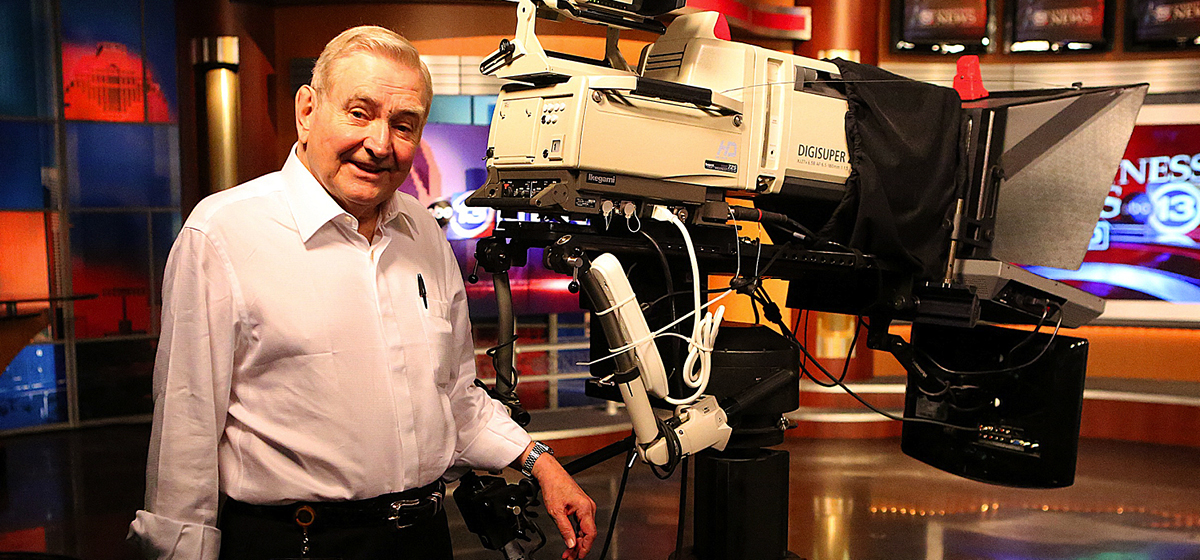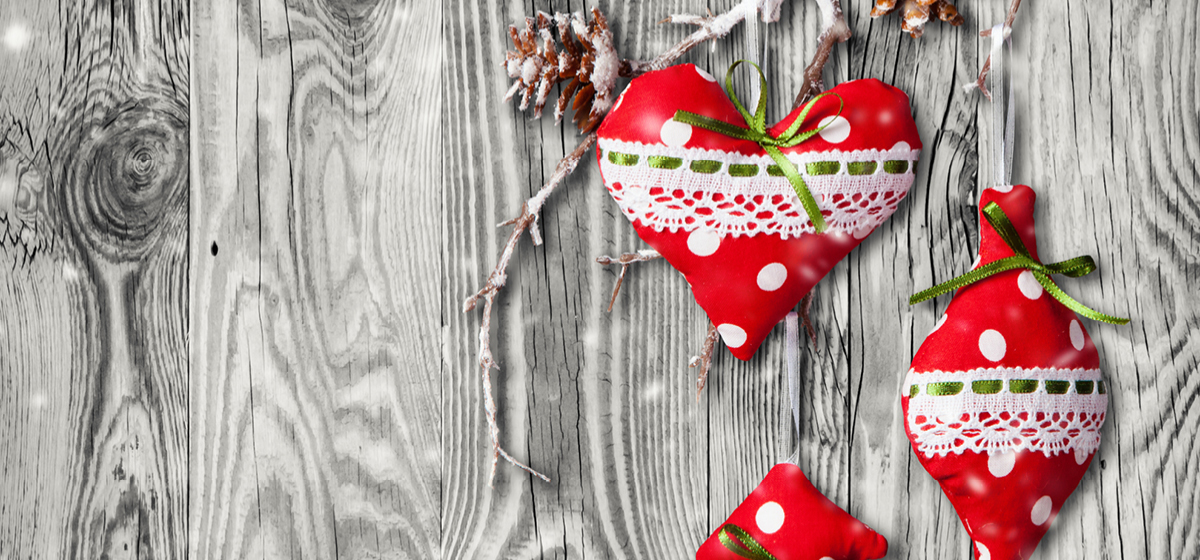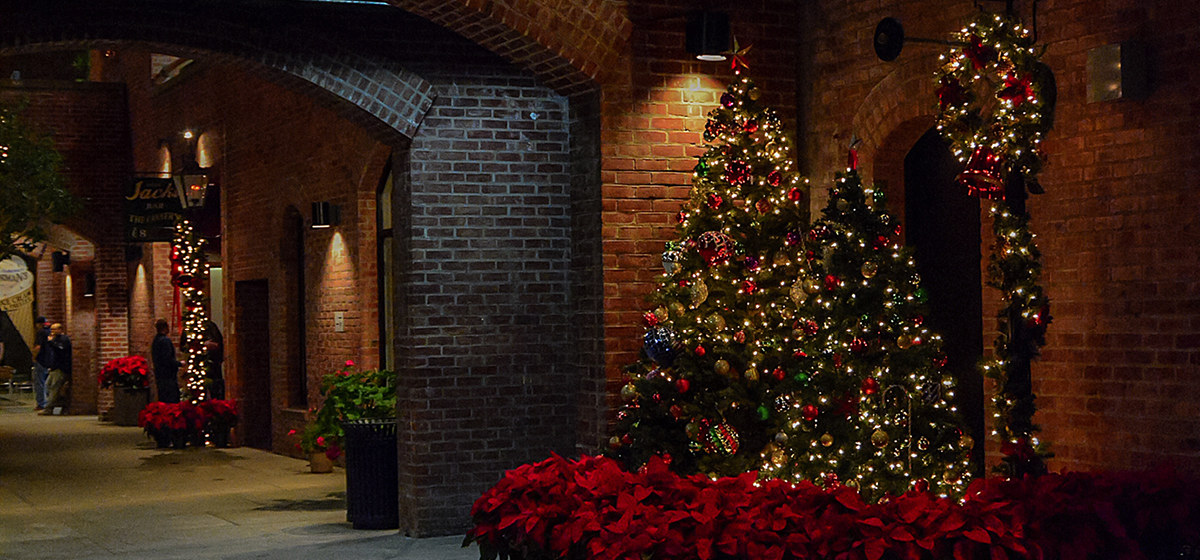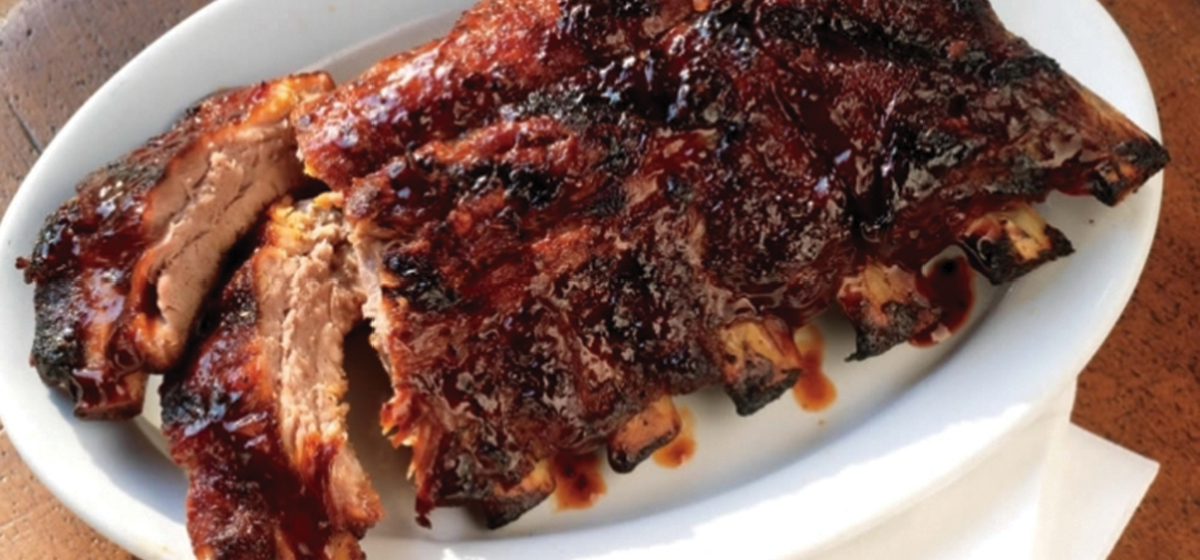Neal McCoy has been in the music business for more than three decades, breaking in with the help of Charley Pride in the early 1980s. His music has taken him across the world, including the White House, but his roots are in East Texas. He discussed his roots and his travels on a recent visit to SHSU, where he visited his son—a current SHSU student—and participated in the University’s annual Let’s Talk event.
His sister Miki graduated from Texas A&M, and he probably thought about going to school there. He wanted to be a singer, but I wasn’t sure that was the best line of work for him. I came out and saw his 11th grade garage band play, and I said, “Man, you’re embarrassing you and me. You gotta do something else.” He didn’t quit singing because I said that, but it wasn’t a good line of work for him.
Yeah, they can’t sing either, but they can write. Swayde’s a great actor, and he started looking around his senior year, thinking of universities. We researched SHSU and met with Julie Schwab, who was very nice and helpful. We also visited the Theater Department and met with Penny Hasekoester [Chair of Theatre and Musical Theatre at SHSU]. We liked what we saw, and he decided he wanted to come to SHSU.
I was born and raised in Jacksonville, Texas, just like my father and siblings. My father went to Lon Morris Junior College, then to Texas A&M, where he graduated. My brother did the same thing, as did my sister. I went to Lon Morris, but I said, “I want to sing,” so I didn’t go on to A&M. My entire family loves to sing, but I don’t think they would want a musical career—but I think they are glad that someone else in their family was stupid enough to go into the music business!
Yes, McGaughey. It was pronounced every which way, and Charley Pride suggested I change it to McCoy. My father was Scotch-Irish, and my mother was Filipino, so I am a half breed, but a full-blooded Texan.
Janie Fricke was the judge in a 1981 music contest, which I won. She told me, “You’ve got a lot of talent, a lot of charisma. I’d like to introduce you to Charley Pride.” We met and just took to each other. He let me open for him on the road for about five years, through the mid-1980s, but I didn’t sign my first music deal until 1990.
 You were traveling with Pride when he was a big name. What’s it like being a young guy in that environment?
You were traveling with Pride when he was a big name. What’s it like being a young guy in that environment?It was a lot of fun. His name drew the crowds, and his band played the music. All I had to do was walk on the stage and play for about 20 minutes. I watched him, and I learned a lot—such as how to treat people off and on stage. But at another level, it was a tough time for me. I lived in Longview, and my day job was running a lawn-mowing business. I worked all week mowing lawns, then took off on Friday to fly out with Charley and play Friday, Saturday, and sometimes Sunday. Over the weekend, I was a somebody. Then I’d go back Monday and mow lawns.
No one was there to see me, and I was okay with it. You try to sell them on you, your personality. I tried to win them over; I still try. You let them know you are there to have fun, and that you hope they will have fun with you. And you need to be good when you do perform. If you’re not good, they’ll say, “Who is this guy? When does Charley start?” If you are good, though, they’ll stay with you for a while.
Sure are. In the 1980s, I played occasionally with an 85 year-old bass player and a 75 year-old black man who had worked with Lionel Hampton. Once, I was playing around and started singing a song that was popular, David Lee Roth’s “Just a Gigolo,” and those old guys jumped in and started playing. I said, “How do y’all know that song?” They said, “How do you know it?” They didn’t know Roth revived it, and I didn’t know Crosby and other guys had done it. But that got me performing a lot of those songs, “I’ll Be Seeing You,” “Old Black Magic,” or “Pennies from Heaven.” I liked a lot of those songs growing up.
That’s right. I’m touring with Blake Shelton, and I hope I’ll be exposed to a younger audience. One of the great things about Blake is he knows all kinds of music, and I think that helps make him successful on The Voice.
Charley told me if I wanted to make it, I was going to have to “get out there, jump in the middle of it.” So I did. I got a band, and we went all over the country, playing five or six nights a week, 4-5 hours a night. And in 1988, Charley helped me get signed with a new label, but the recordings didn’t go anywhere. And this whole time, I’m asking myself, “How selfish am I?” I’m out on the road, not with my wife and children. I’m trying to make it, but my wife is trying to raise a family.
In 1990, while I was performing with a band called White Buffalo. A guy from Atlantic Records comes out to see me. He listens, then asks, “Are you with you, or are you with the band?” I said, “It’s really just me.” He said, “Good, the band sucks.” So at least I got one answer correct.
Well, it was in 1994, on our third album. The song was “No Doubt About It,” and it had a groove to it. It was 20 years ago that we recorded it, and it went to number one.
[chuckles] Yes. I was almost 35 when I had my first hit.
About 220, but we’re still doing almost 200 a year.
It’s professionalism. I get myself up for every show, not every other show, and I don’t mail it in. I’m mentally prepared, although I don’t necessarily have a set list. In fact, our band doesn’t even know what we are going to play until we are on the stage.
Not necessarily [laughs]. My keyboardist is the best. She has a perfect pitch. I can pick something off the wall, [sings] “I’m just a gigolo, and everywhere I go…” And she can play it in key. She knows the music I know, from the standards to stuff we grew up with, as well as contemporary pieces. She hears it, and she plays it. We might be playing a beer joint, and I’m not going to get too fancy, but if we’re playing Branson, and the people are listening, I can walk out and sing “Over the Rainbow.”
 How has the music business changed over the three-plus decades you’ve been playing?
How has the music business changed over the three-plus decades you’ve been playing?From a business standpoint, it’s come full circle. When Pride was starting, they were selling 45 rpm records, singles. Record producers soon realized they could produce a whole album for just a little more cost than the single, but they could sell the album for ten times the price of the single. And you saw the move to the LP record or cassette or compact disc. But in the digital age, kids download the music, and the industry is based on singles again.
That has changed the music, too, because the LP allowed artists to explore musical themes, as in Miles Davis’ “Blue Moods” or Sinatra’s “Only the Lonely” or even the Beatles’ “Sgt. Pepper’s Lonely Heart Club Band.” That doesn’t really exist anymore.
That’s right, and I don’t know if this is related, but it seems the loyalty has changed. When we were kids, we were fans of specific artists: Led Zeppelin; Charley Pride; or Earth, Wind, and Fire. We bought the album because we liked the artist. It’s different today. Fans like a song, so they buy that song. I wonder if some of the younger artists will be able to keep their following over time. I still have a loyal audience, but my challenge is to reach out to the young ones.
As I mentioned, the tour with Blake Shelton will give me an opportunity to do that. When I come out, they’ll say, “Oh no, someone’s grandfather is on the stage.” But when I get done, maybe they’ll say, “This old joker is pretty good.” I sometimes make fun of myself, saying “I’m too old to be hip, but not old enough to be cool again.” It’s like Tony Bennett. Kids started to take to him again about 15 years ago, when he was 70.
There are some young guys doing some good music, although a lot of country music seems to focus on truck songs. I like a kid named Hunter Hayes, a guy named Charlie Worsham, and others. They explore more than their trucks with their music.
I got to know General Franks from doing USO shows, and we became good friends. I first did the USO in 2001, and I’ve done it a dozen times since then. In the process, I became good friends with General Franks, and I asked him to appear on “Last of a Dying Breed.”
This October will be our 20th Anniversary, and we’ll have our annual golf tournament and concert. My wife and I started it to help children from East Texas with life-threatening or life-challenging illnesses.
I knew George W. Bush a little bit when he was governor. I sang the national anthem at Rangers’ games, and between President Bush being a country music fan and him knowing my Filipino background, I must have come to his mind when he was creating a guest list for a state dinner honoring President Arroyo of the Philippines.
I was on the road, but my mother-in-law called and said, “The White House is trying to get in touch with you.” I said, “The White House in Washington, DC?” It was. They wanted my address to invite me to a “state dinner,” but I thought they said a “steak dinner.” Seemed like a long way to travel for a steak [laughs]. But it was a wonderful experience. President Bush introduced me to President Arroyo, and he told her my mother was from Manila. President Arroyo began speaking to me in Tagalog, and I had to tell her that I don’t actually speak the language except to count to ten or to cuss. She promptly switched to English.
When we were being seated, we had to show our invitations. My wife’s name was under “McGaughey,” and my name was under my stage name, “McCoy.” They put us at different tables, which I assumed was a mistake, stemming from the differences in our last names. I told the staff that, even though we have different names, we’re married. I was trying to convey that we should be seated together, but they tactfully informed me that spouses don’t sit together at state dinners. My first state dinner, and I am already embarrassing myself [laughs]! But it worked out okay, Melinda sat with George F. Will, Majority Leader Bill Frist, and Lynne Cheney. I sat with Sandra Day O’Connor, President Arroyo, and President Bush.



